Category: News & Events
Ron Coleman: 2022 Visionary Award recipient
Published by Joan Lowell on Oct 13, 2022
Dear Feeding Matters Supporters,
It is with great pleasure that I announce Feeding Matters has selected Ron Coleman as the 2022 Visionary Award recipient. This award has been established by Feeding Matters’ Founder and Emeritus Board Member, Shannon Goldwater, to recognize individuals who have exhibited passion and commitment to help further advances in pediatric feeding disorder.
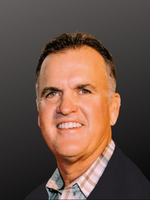
Ron Coleman and the Ingebritson Foundation have been integral supporters of Feeding Matters from its inception and are cornerstones to the success Feeding Matters has seen to date. The Ingebritson Foundation has focused on serving organizations who assist the most vulnerable including a focus on children’s causes. Those efforts led them to become deeply acquainted with and strong initial supporters of Feeding Matters during its infancy stages. Ron was a leader, supporter, and strategic thought partner for Shannon Goldwater as well as the organization’s founding CEO, Chris Linn. This connection continues to this day and has only strengthened over the past 15 years.
The selection committee for the Visionary Award is a group of community leaders who annually select and honor individuals who are exemplary leaders, community servants and most importantly, who have been instrumental in contributing to the work Feeding Matters is doing to ensure a world in which children with pediatric feeding disorder thrive.
As a past recipient of the Visionary Award and Board Member of the Ingebritson Foundation, I have seen firsthand Ron’s dedication to his community and support of causes like Feeding Matters and I am honored to present this award to Ron Coleman. This award gives all of us an opportunity to honor Ron Coleman for the community hero he is.
Ron Coleman will be honored as part of the Feeding Matters’ 10th Annual Community event, held virtually, November 4, 2022. The event attracts 800+ guests, including families impacted by pediatric feeding disorder (PFD), business and community leaders, sponsors, executives, politicians, and healthcare professionals who serve children with PFD.
The event is free to attend with a call for donations. Proceeds from the event benefit Feeding Matters and its mission to further advances in pediatric feeding disorder by accelerating identification, igniting research, and promoting collaborative care for children and families.
You can help make this honor memorable for Ron by attending the event. If you are unable to attend, I would encourage you to consider making a donation in support of Ron’s achievement.
Thank you for your support and we look forward to seeing you at the 2022 Feeding Matters Annual Community event.
Sincerely,
Joan Lowell
2018 Feeding Matters Visionary Award Recipient
Celebrating 15 Years
Published by Jaclyn Pederson, MHI on Sep 30, 2022
Dear Friends of Feeding Matters,
A year ago today, a pediatric feeding disorder (PFD) milestone was met that will be life-changing for generations to come. On Oct 1, 2021, pediatric feeding disorder was officially included in the US diagnostic manual (learn more here), authorized by the Centers for Disease Control and Prevention (CDC) and on that very same day, the world had its first official diagnosis of PFD.
As we reflect on what this last year has brought for the PFD community, we celebrate the increased recognition of pediatric feeding disorder and validation that this code brings for families and professionals. But we know there is still so much work to do. Insurance companies still need the education on what PFD entails and the best way to support families who face this disorder. Pediatricians who weren’t taught about feeding still need support with early identification and knowing how to refer to qualified providers. We are moving the needle on these tough challenges, but changing the structure of medical care and medical professional education takes time.
Today, we celebrate PFD’s first “birthday” and keep that excitement near as we continue the long fight ahead. We have made real, lasting change, and that will continue as we evolve the system of care for children and families.
Best wishes,
 Jaclyn Pederson, MHI
Jaclyn Pederson, MHI
CEO
This will be my last update for 2022 as I will be going out on maternity leave next month. While I’m out and feeding (and playing with and snuggling!) my new little one, we’ll have some of our leadership and families share their experiences with all of you.
Meet the 2022 Virtual Community Event Honorary Chair
Published by Feeding Matters on Sep 21, 2022
Meet Elizabeth Goodman, mother to Elliot, and 2022 Virtual Community Event Honorary Chair. Learn more about the event and how to register here.
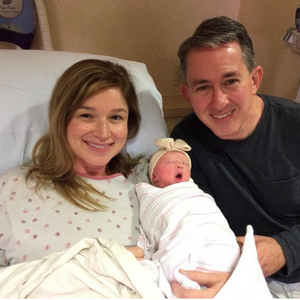 Early in my pregnancy with Elliot, I found out I had severe IUGR (Intrauterine growth restriction). As a result, I was closely monitored and had to undergo an early scheduled c-section. It was determined that she needed to come out at exactly 37 weeks. She was born healthy but at a very low birth weight of 4.14 lbs, which was less than 1st percentile.
Early in my pregnancy with Elliot, I found out I had severe IUGR (Intrauterine growth restriction). As a result, I was closely monitored and had to undergo an early scheduled c-section. It was determined that she needed to come out at exactly 37 weeks. She was born healthy but at a very low birth weight of 4.14 lbs, which was less than 1st percentile.
During her first year, Elliot had no issues with feeding. She breastfed and then transitioned to solids like I had come to expect for her feeding journey. Right at year 1, she started refusing all solids. We didn’t understand why or what was going on. My mind initially went to Autism because she seemed to have gross motor skill and speech delays. Our pediatrician dismissed my concerns. He said some kids are just picky eaters. I did some research on my own and enrolled in a two-year evaluation at local organization for Autism and early childhood development. It was advised that Elliot had gross motor skill and speech delays and we were referred to the children’s hospital’s developmental pediatrician and outpatient rehab.
 The Developmental Pediatrician ruled out Autism and diagnosed Ellie with hypotonia and sensory processing disorder. Throughout all of this, I was desperate for help with feeding and didn’t know where to find it. Her diet during this time consisted of milk, yogurt, and limited purees. We started feeding therapy as part of her overall Occupational Therapy, but it didn’t seem to be helping. Elliot would only eat a handful of solids. I was worried about her nutrition. Every day I struggled with what to feed her and how to get energy into her growing body. Every day I felt like a failure.
The Developmental Pediatrician ruled out Autism and diagnosed Ellie with hypotonia and sensory processing disorder. Throughout all of this, I was desperate for help with feeding and didn’t know where to find it. Her diet during this time consisted of milk, yogurt, and limited purees. We started feeding therapy as part of her overall Occupational Therapy, but it didn’t seem to be helping. Elliot would only eat a handful of solids. I was worried about her nutrition. Every day I struggled with what to feed her and how to get energy into her growing body. Every day I felt like a failure.
She slowly started accepting a few solids. I was scared to give her non-accepted foods for fear that she would refuse to eat. I lived in fear of feeding time. I was desperate every single day to be able to give her the nutrition she needed. She was no longer on the growth chart.
It was very difficult for me, a healthcare attorney and lobbyist with resources, to navigate the confusing web of finding a diagnoses and treatment. This always reminds me that others are probably struggling even more to get access and figure out what is going wrong. We have to find ways to make treatment more accessible and available to marginalized and underserved populations.
After a lot of research and referrals, I finally started seeing a pediatric gastroenterologist at the local children’s hospital. She was the first doctor to listen to me, believe me, and help me find meaningful solutions to feeding. She prescribed a nutritional supplement and Elliot’s weight started increasing. She was back on the growth chart and for the first time I felt hope.
We were then connected to Feeding Matters. At Feeding Matters, I found solace to know that I wasn’t alone. It wasn’t just me, it wasn’t my fault, and there were resources available. Feeding Matters connected me with a pediatric nutritionist and a pediatric psychologist, who we still see today. I also got connected to a new feeding therapist.
 Elliot is now almost 8. She’s 30th percentile for weight and 70th percentile for height. We still participate in feeding therapy and have made so much progress. She now eats lots of fruits, grains, dairy options, and…BACON! She loves bacon and we go through several packages a week. Can you blame her? It remains the only meat product but adding a single meat product was an enormous hurdle as it was her biggest aversion. Sometimes she lets us add spinach into smoothies. Previously, she would stealthily sniff out a single morsel of veggie we attempted to incorporate into anything. And while her growth continues to be supported by some nutritional supplements, I can now see a future where we won’t need it for long. For me, this is huge.
Elliot is now almost 8. She’s 30th percentile for weight and 70th percentile for height. We still participate in feeding therapy and have made so much progress. She now eats lots of fruits, grains, dairy options, and…BACON! She loves bacon and we go through several packages a week. Can you blame her? It remains the only meat product but adding a single meat product was an enormous hurdle as it was her biggest aversion. Sometimes she lets us add spinach into smoothies. Previously, she would stealthily sniff out a single morsel of veggie we attempted to incorporate into anything. And while her growth continues to be supported by some nutritional supplements, I can now see a future where we won’t need it for long. For me, this is huge.
With the help of Feeding Matters and the incredible providers who listened, believed, provided a safe space, and helped us find solutions, we have made incredible progress and are incredibly grateful. I am honored to chair the 10th Annual Community Virtual Event to help raise awareness, funds, and hope for families with pediatric feeding disorder.
PFD Awareness Month 2022
Published by Feeding Matters on Jul 01, 2022
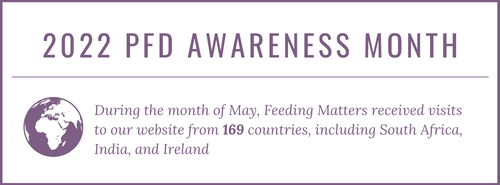 View the full report>>
View the full report>> Guidelines for NICU Discharge Preparation and Transition Planning
Published by Feeding Matters on Jun 17, 2022
The National Perinatal Association’s (NPA) interdisciplinary Guidelines for NICU Discharge Preparation and Transition Planning have been published! We appreciate the opportunity to have contributed to this open access adaptable and actionable work. Please download the complete publication and visit the NPA’s “NICU to Home” landing page for additional resources.
Resources
NPA Guidelines
NICU to Home
A Note from NICHQ’s CEO
Published by Scott D. Berns, MD, MPH, FAAP on Apr 05, 2022
We are pleased to share a message from the keynote speaker for the 2022 International Pediatric Feeding Disorder Conference (IPFDC). Learn more about the conference and register today.
When Feeding Matters approached me about serving as this year’s keynote speaker at the International Pediatric Feeding Disorders Conference (IPFDC), I was honored. My role as the President and CEO of the National Institute for Children’s Health Quality (NICHQ) means that I am constantly learning about challenges that families and children face when it comes to healthcare and strategizing ways to create change. I know, and you know, that change for the future is vital, but how can we help those families who are unable to receive services now? Change is important. Rapid change can be vital.
This is part of the reason why I am so pleased to serve as this year’s keynote speaker for Feeding Matters. This organization is 15 years old. And in that time, it has evolved from a parent support organization to an organization that helps pave the way with the medical community to create the rapid change I mentioned. Through their collaborations, innovations, and strategic vision, Feeding Matters put pediatric feeding disorders (PFD) on the map, most notably with the recent establishment of diagnostic codes. These are the kinds of rapid changes that are so powerful.
I am looking forward to speaking with all of you at the conference about Driving Change to Improve Children’s Health. Whether you are attending as a professional, parent, or community member, your presence at the IPFDC is vital so that we can all continue the momentum that Feeding Matters has generated to rapidly change and improve the way children with PFD are cared for.

About Scott D. Berns, MD, MPH, FAAP
Berns has served as President and CEO at the National Institute for Children’s Health Quality (NICHQ) since 2015, where he applies his extensive experience working across academic, clinical, nonprofit, community, and public health settings to lead initiatives aimed at driving change to improve children’s health. Berns is a nationally recognized expert in quality improvement science in maternal and child health and has published extensively.
Berns is also Co-Founder and Board Chair of The Progeria Research Foundation (PRF). He ensured PRF was a key force behind the Progeria gene discovery and has developed impactful international programs for Progeria families and researchers. In addition, he currently serves on the Executive Committee of the American Academy of Pediatrics’ Council on Quality Improvement and Patient Safety, American Academy of Pediatrics. Prior to joining NICHQ, Berns spent 14 years at the March of Dimes National Office serving as the Senior Vice President of Chapter Programs and the Deputy Medical Officer. He provided direction in education and community services to all March of Dimes state-based chapters, including DC and Puerto Rico.
Berns is a board-certified pediatrician and pediatric emergency physician. He is a Clinical Professor of Pediatrics at the Warren Alpert Medical School of Brown University and Clinical Professor of Health Services, Policy and Practice at the Brown School of Public Health. Berns also completed a one-year White House Fellowship where he served as a Senior Advisor to the U.S. Secretary of Transportation.
You’re Not Alone
Published by Jaclyn Pederson, MHI on Jan 24, 2022
Dear Friends of Feeding Matters,
Typically, when I sit down to write these messages to you all, I try to share messages of inspiration or hope. But I have to be vulnerable with you right now. It’s been tough to find that inspiration, even in the light of a new year, which is typically a source of renewal for me and many others. And the reason I share this, besides always wanting to be an authentic leader, is that I know others have entered the year feeling the same way and I want you all to know you’re not alone. Whether you’re trying to carry out feeding therapy recommendations at home with your child or providing care for families day in and day out, it’s ok that the start of this year isn’t feeling great and it’s ok to give yourself the grace and space to feel that way. You can give yourself permission to be the best self that you can today, with no judgment or expectation. This is what I’ve been trying to do for myself, and encouraging the Feeding Matters team to embrace as well. If these last few years have taught us anything, it’s that we need to be kind to ourselves.
When I’m feeling a little less than my best, I focus on the good. At Feeding Matters there is a lot of good. We truly do have many exciting things to share with you and many opportunities for you to get involved this year. Our mission is “Furthering advances in pediatric feeding disorder by accelerating identification, igniting research, and promoting collaborative care for children and families,” – and we will always stay laser focused on that mission. Thank you for embracing a new year of challenges and a new year of opportunities with us. This year, we will do great things together and will give ourselves space and grace when we need it.
Best wishes,

Jaclyn Pederson, MHI
Chief Executive Officer
2021 Visionary Award Recipients
Published by Feeding Matters on Oct 19, 2021
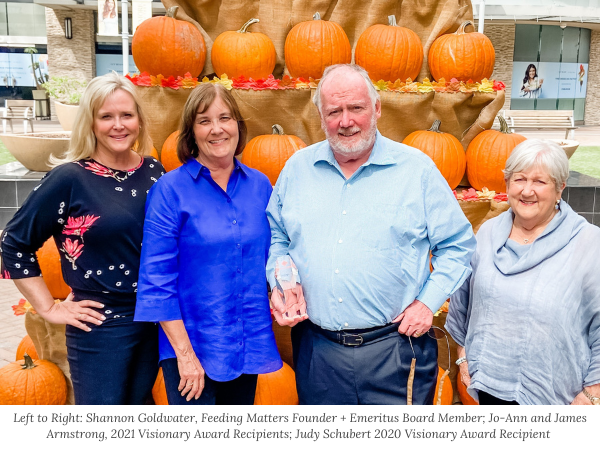 Feeding Matters will honor Jim and Jo-Ann Armstrong with its Visionary Award at the 9th Annual Community Event on November 5, 2021.
Feeding Matters will honor Jim and Jo-Ann Armstrong with its Visionary Award at the 9th Annual Community Event on November 5, 2021.
The Armstrongs have been integral supporters of Feeding Matters from its inception. The Armstrong Family Foundation was one of the organization’s first funders which allowed for critical early growth which opened the doors to future funding. Those were not the only doors the Armstrong family opened. The first office space that Feeding Matters called home came through Jim’s leadership and generosity. Several of the Armstrong family members have served in a leadership capacity including on the Board of Directors and as Lead Partner for Feeding Matters as part of a grant received from Social Venture Partners. Additionally, the entire family has continued to advise Feeding Matters over the years, and most recently, invested in the Power of a Name Campaign.
“When we first met leaders at Feeding Matters, we were appreciative of their mission and the energy they brought to addressing the need. They had a clearly defined strategy, and we were happy to be early financial supporters,” said Jim Armstrong. “We watched them grow from a start-up to the impressive and important institution they are today. We are thrilled with the success of Feeding Matters and congratulate them on the relief they have brought to thousands of families,” Armstrong concluded.
“The Armstrong family has been pivotal in allowing Feeding Matters to become what it is today,” said Jaclyn Pederson, chief executive officer of Feeding Matters. “We are forever grateful for their trust, leadership and support.”
Jo-Ann Armstrong has been an active figure in Phoenix philanthropy for decades. She is currently a board member of the Armstrong Family Foundation and the Kiita Foundation. Previously, she held board member positions with the Salvation Army advisory board and ASU’s ACES program. In addition to raising four children, she was instrumental in the development of JDA Software in its’ early years and has received many awards, such as the Paradise Valley Volunteer of the Year, ASU’s Outstanding Community Partner and the 2002 Sally Award from the Salvation Army. She has also served as a member of ASU’s Women and Philanthropy.
Jim Armstrong is the founder of JDA Software Group, Inc., (now Blue Yonder). He has served as CEO, director, chairman and co-chairman since founding the company in Canada in 1978. He is currently serving as director and President of JDA Investments (US), Inc. He has served on the board of directors for various companies. He is President and Chairman of the Armstrong Family Foundation, President and Chairman of the Kiita Foundation, and Director of the Rancho Feliz Charitable Foundation. He has received numerous awards and honors including Arizona Software Association Business Leader of the Year, Ernst and Young Master Entrepreneur of the Year Award, Ernst and Young Spirit of Philanthropy Award, Ed Denison Business Leader of the Year Award, National Society of Fundraising Executives Spirit of Philanthropy Award and Arizona Technology Council’s Lifetime Achievement Award.
Feeding Matters’ Visionary Award was created to recognize an individual(s) or corporation who has exhibited passion and commitment to help further the advances in pediatric feeding disorders. This annual event will be livestreamed on a national stage, from Phoenix, AZ on November 5, 2021 at 9:00 a.m. AZ and 12:00 p.m. EST.
Register for the event or make a gift in Jim and Jo-Ann’s honor today!
The first PFD diagnosis in the US
Published by Feeding Matters on Oct 08, 2021
Families of children with pediatric feeding disorder around the United States have long struggled to advocate and explain their children’s struggle in part because there has never been a diagnostic code or name for PFD. That changed last week.
In collaboration with Desert Valley Pediatric Therapy in Arizona, Feeding Matters was connected with Easton and his mom Natalie. While Easton’s journey with PFD is not new, he is the FIRST child with an official PFD diagnosis, using the just-released ICD-10 codes. Hear from Easton’s mom about what having an official diagnostic code means to her and her family. We will follow Easton, and other families using the new codes, as they continue their journey with their official diagnosis of pediatric feeding disorder.
Feeding Matters is now gathering stories of families facing PFD. Celebrate the new diagnostic codes with us by reading these stories or sharing your own.
VOLUNTEER MEDICAL DIRECTOR: RICHARD NOEL, MD
Published by Feeding Matters on Mar 01, 2021
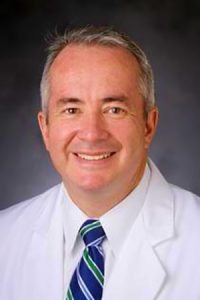
We are excited to share with you our volunteer Medical Director for the 2021-2022 term, Dr. Richard Noel. We also would like to ardently thank Dr. Jaime Phalen, our previous volunteer Medical Director who served in many capacities to advocate for children with PFD over the past few years and remains a close advisor.
Our Medical Director, and all of our PFD Alliance leadership is committed to creating a world in which children with PFD thrive. Additionally, they support Feeding Matters’ philosophy that: we believe families are an equal and valued member of the treatment team and should be respected in this way; we view PFD as a multi-facet challenge comprised of 4 domains; we recognize the need for evidence-based practices; and we believe all sectors are influential and multiple perspectives are necessary to create a functional system of care.
Our CEO, Jaclyn Pederson, recently sat down with Dr. Noel to learn more about his passion for children with PFD.
Tell our feeding community a little bit about yourself. How did you come to practice GI medicine? How did you get involved with Feeding Matters?
As all medical students, I was exposed to all medical and surgical fields and found pediatrics to be the most fun and rewarding. Once in a pediatric training, I found pediatric GI to be the most interesting and decided to pursue additional formal GI fellowship training. It was during this time in Cincinnati that I was initially exposed to pediatric feeding disorder and aerodigestive diseases, both within programs that were the legacy of Dr. Colin Rudolph.
Upon completion of my GI training, I moved to Milwaukee to work with Dr. Rudolph where I learned much more about pediatric feeding disorder from Dr. Rudolph and the active group of interdisciplinary colleagues he organized. I met Shannon Goldwater and Chris Linn and became formally involved with Feeding Matters in 2010, following the initial involvement of Dr. Rudolph and other colleagues with the nascent stages of what grew to be this amazing advocacy organization.
How do you see the PFD consensus definition changing care for our children with PFD?
Feeding problems in children are not new and many have attempted to define them, typically from a perspective that is limited to their own field. Apparently disparate terms like dysphagia, malnutrition, ARFID, infant anorexia, all probably refer to similar things, but are limited by the narrow scope of practice of those who generated them.
The 2019 consensus definition organized by Feeding Matters is the first truly multidisciplinary construct that recognizes the many elements that form pediatric feeding disorder. Furthermore, this consensus definition is written according to the International Classification of Functioning, Disability and Health (ICF), recognizing the disability that can accompany PFD, but has been poorly recognized in considering access to therapies and special accommodations by schools and other settings.
PFD is best managed by an interdisciplinary team where the family is primary. Based on your experience as a gastroenterologist, why do you feel a team-based approach is so important?
The nature of PFD is that relevant issues in a given patient may fall outside the scope of practice in a single discipline (i.e., a gastroenterologist may have expertise in issues relating to the upper GI tract of a child but does not have the same understanding regarding the mechanics of swallowing). It is by this necessity that team-based care is always best, whether in an interdisciplinary team at a large referral center, or a smaller group of specialists who work apart, but form a “virtual team” that can still address all relevant issues of a child with PFD.
What advice would you give the feeding community to help them access or provide optimal care for children with PFD?
Families of children with PFD need to be educated consumers who can push their providers to ensure all relevant needs are met. Do we need a referral to a psychologist? Do we need to enroll a dietitian who can help a feeding therapist broaden the choices of food with a given texture? Sometimes, it takes an educated family to push a provider to become better at managing a complex problem, such as PFD.
We have asked several questions about your connection to PFD. Please share something about yourself that we may find surprising, or we might not know.
I was born in Mexico City and Spanish was my first language. We moved to San Antonio, TX when I was 9 years old, and I always benefited from my family’s bicultural perspective on issues.